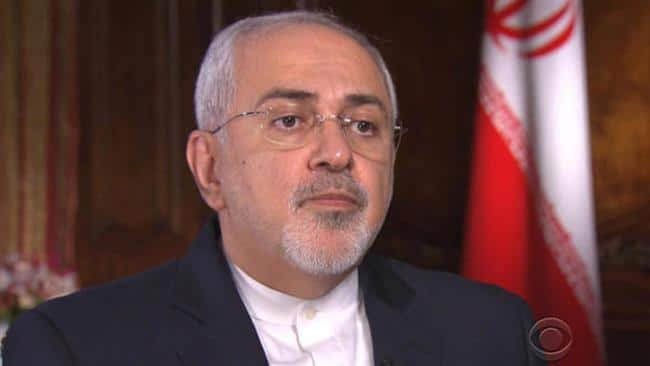Iran pursued a high-profile campaign on Tuesday against further US sanctions and the prospect of Congress adopting even wider restrictions.
On Monday, the Trump Administration recertified Iran’s compliance with the July 2015 agreement over its nuclear programs. However, the Administration promised measures over the Islamic Republic’s ballistic missile tests, alleged support of “terrorism”, and involvement in the Syrian civil war. Yesterday US authorities added another 18 Iranian individuals and entities to their blacklist.
Foreign Minister Mohammad Javad Zarif led the response, telling the US outlet CBS, “It violates the spirit of the deal. We will look at it and see whether it violates the letter of the deal, and we will act accordingly.
Zarif said that the US is trying to “poison the international atmosphere”. He made an implicit appeal to foreign governments and companies, many of whom have been hesistant to renew trade and investment with Iran because of fear of US punishment: “The international community has read this very loud and clear and continue to deal with Iran without much attention to this theater.”
He opined that Trump should be focusing on others such as Iran’s rival Saudi Arabia: “These are the countries that are producing terrorists for you. And the United States is going after Iran. I don’t know why.”
The Foreign Ministry also promised retaliation: “[We] will in turn impose new sanctions against a number of other American persons and entities that have taken hostile steps against the Iranian people and other Muslim nations in the region.”
And the Iranian Parliament issued a token response to the prospect of Washington designating the Revolutionary Guards as a “terrorist organization”. It adopted a “single-urgency motion” declaring that “the entirety of the United States’ military and intelligence forces are considered as supporters of terrorist groups in the region”.
Last month the US Senate voted 98-2 for new sanctions on Iran over its “destabilizing activities”. The measure is still being considered by the House of Representatives, but has been complicated by debate over similar restrictions on Moscow amid the expanding Trump-Russia controversy.

